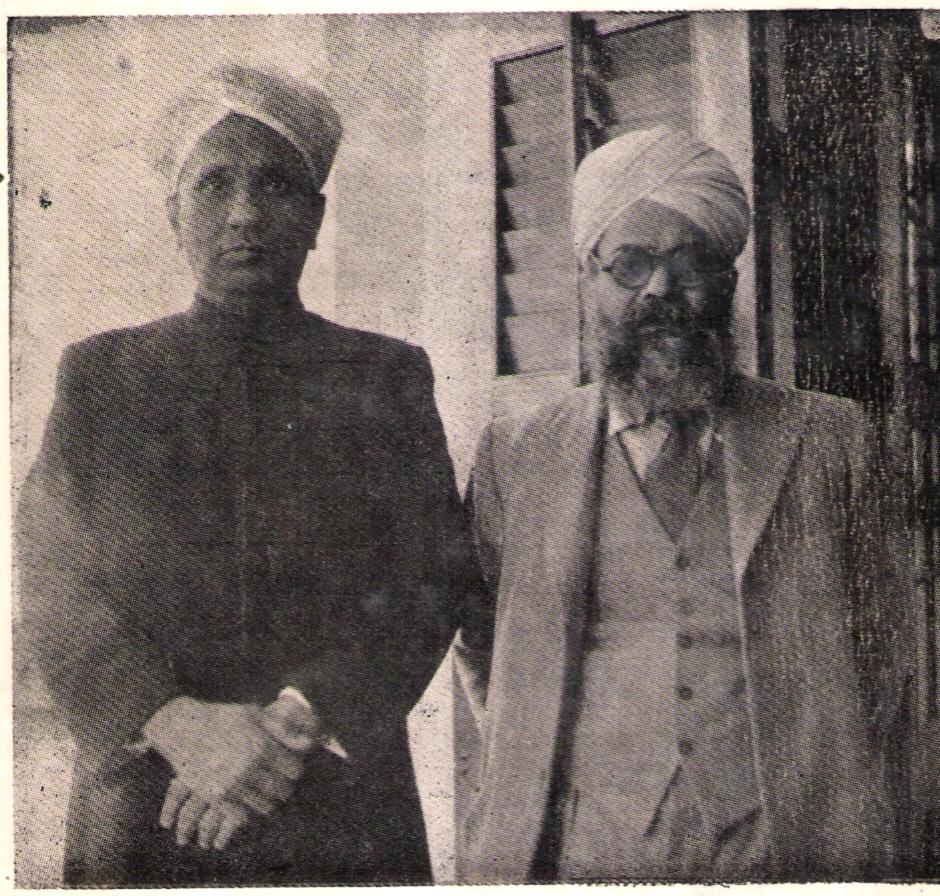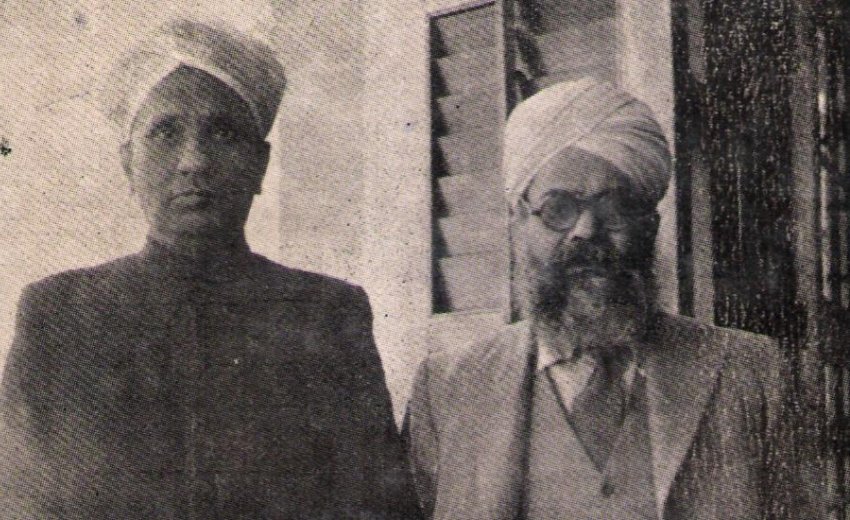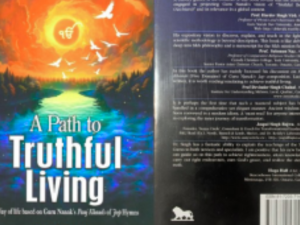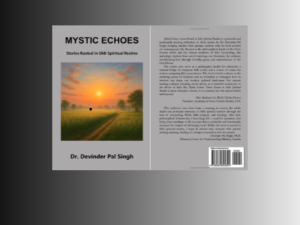By Hardev Singh Virk and Rajinder Singh
Jews, like Sikhs are a minority religious community in the world. But they are better known in the field of science and technology by winning almost 50% of total Nobel Prizes awarded so far by the Nobel Foundation in the world.
The Sikh community hardly played any worthwhile role in the field of science education. One of the reason seems to be that even if, Sikhs did good scientific work, they hardly bothered to write about their heroes. Bawa Kartar Singh is such a case, who is hardly known in Sikh circles outside university academia. So far as the present authors are aware, there is not a single biography available for the Sikh Scientist, who was asked by the Noble Committee to send a proposal for the Nobel Prize in Chemistry. We hope that this article motivates the Sikh community at large to appreciate the contribution of their heroes in scientific field also, as they are accustomed to honour their heroes who suffered martyrdom for the cause of religion. The Nobel Prizes, named after the Swedish inventor and industrialist Alfred Nobel, are one of the most prestigious awards. According to the will of the founder, they are awarded to persons for their services in the fields of chemistry, physics, physiology and medicine, literature and peace. The Nobel Prize for Economic Science was established by the Swedish Bank, and the first awarded in 1969. Unfortunately, not a single Sikh has won this coveted prize in any field, although Hargobind Khurana and Abdus Salam (both Punjabis, a Hindu and a Muslim) have won it.
Until 1974, the documents regarding the Nobel Prizes were kept secret. Due to the efforts of historians, the Nobel Foundation agreed to give the documents free for research purpose, under the condition that they must be at least 50 years old. Recent research shows in the fields of Chemistry and Physics, India stands in the list of "top-twenty" so far as the number of proposals either received or sent by a nation is concerned. So far as Chemistry is concerned, none of the Indians was ever nominated, with the exception of the Physicist G.N. Ramachandran, who was nominated by the Laureate C.V. Raman for Chemistry Nobel prize. Only 10 Indians were asked to send proposals for this coveted Prize. Bawa Kartar Singh was one of them. In part this case is discussed in “Chemistry and Physics Nobel Prizes – India’s Contribution” [1]. Unfortunately, the book is not available in India. The present article intends to highlight the contribution of Sikh community in the scientific world.
B.K. Singh proceeded lo England in 1904 for higher studies at the Downing College of the Cambridge University. He obtained Tripos in Natural Sciences in 1906. He continued his post-graduate studies in the University of Cambridge and London. In 1910, after finishing his education, he returned to India and joined as Professor of Chemistry at the Govt. College, Dacca. Here, he was inspired by Bengal based chemists like E.R. Watson and P.C. Ray. He left Dacca College in 1918 to join the Govt. College, Lahore, as Head of the Department of Chemistry. Three years later in 1921, he was selected in the Indian Education Service (I.E.S.) and was posted at the Govt. College, Patna (now Patna University). Soon after, he was transferred to Ravenshaw College Cuttack where he worked as Head of Chemistry department till 1936.
We recall an interesting episode from his life in Cuttack. He had no research facility when he joined Ravenshaw College. It so happened that the Mahanth of Emar Math of Puri came to visit this College and BKS took him on a round of his laboratory. He told Mahanth that he was handicapped to carry out his experiments as he did not have a polarimeter. The Mahanth was so impressed by the spiritual aura of BKS that he donated enough money which enabled BKS to purchase the polarimeter for his experiments.
A short biography of Bawa Kartar Singh [2, 3]
Bawa Kartar Singh (BKS) was born on 17 April 1886 at village Verowal in district of Amritsar, Punjab. His father, Bawa Jiwan Singh, was a member of the Indian Medical Service. BKS had to discontinue his studies at the D.A.V. School, Lahore, because his father was transferred to Burma. He passed the entrance examination of the Calcutta University in 1903, standing seventh in the order of merit. It is worth mentioning that here he came in contact with the renowned Bengali Chemist from Calcutta, also known as father of the modern Chemistry in India, namely, Prafulla Chandra Ray, the first chemist (along with P.C. Mitter), who in 1935 were asked by the Nobel Committee to propose candidates for the Chemistry Nobel Prize [4].
After his retirement from Govt. service (IES) in 1940, he joined as the Professor of Chemistry, University of Allahabad. Six years later, he got the status of an Emeritus Professor from the University. It is during this time that he was asked by the Nobel Committee to send a proposal. From 1948 to 1960 he was honorary Professor at the Benaras Hindu University, Varanasi. It is intriguing to imagine why Punjab University, Chandigarh failed to honour this son of Punjab during his life time, while after his death, memorial BKS lectures are being held in its department of Chemistry to commemorate his scientific contributions.
BKS suffered an attack of paralysis at the age of 74 and he died on 16 June I960 at Chandigarh.
During 1925-26, BKS went to England and France on study leave and worked in the Universities of Cambridge, St. Andrews, and Paris. There and then, he attracted the attention of the scientific world to his brilliant research on the stereochemistry of camphor compounds. In 1936, he returned to Patna and joined as Head of the Chemistry department in Science College (under Patna University) and as the Chemical Adviser to the Govt. of Bihar.
All in all, he published more than 150 research papers in national and international journals of repute such as Nature and The Journal of The Chemical Society of England.
BKS suffered an attack of paralysis at the age of 74 and he died on 16 June 1960 at Chandigarh.
After his retirement from Govt. service (IES) in 1940, he joined as the Professor of Chemistry, University of Allahabad. Six years later, he got the status of an Emeritus Professor from the University. It is during this time that he was asked by the Nobel Committee to send a proposal. From 1948 to 1960 he was honorary Professor at the Benaras Hindu University, Varanasi. It is intriguing to imagine why Punjab University, Chandigarh failed to honour this son of Punjab during his life time, while after his death, memorial BKS lectures are being held in its department of Chemistry to commemorate his scientific contributions.

Nobel Laureate C.V. Raman and B.K. Singh
Nobel Laureate CV Raman was the first Asian to receive the Nobel Prize in Physics. According to the record of the Nobel Foundation, until today, he remains the only Indian in the fields of Chemistry, Physics, and Medicine & Physiology who won the Prize. In 1932, Raman left Calcutta as he was offered the Directorship of the Indian Institute of Sciences (IIS), Bangalore. After a few years he was forced to resign the Directorship of the IIS. The causes of this tragedy are explored in detail in the book "Nobel Laureate C.V. Raman's work on light scattering" [6].
BKS wrote in his nomination letter of recommendation [7]: "J.R. Geigy used it to check a plague of potato beetles in Switzerland. ... The discovery of the effectiveness of this substance is of great interest in hygiene, as it destroys and checks many human, animal and plant parasites: it is a synthetic multi-purpose insecticide which has eradicated typhus epidemic and has proved enemy to malaria-carrying mosquito, and other household pests, besides controlling many of the insects which now cause untold damage to food crops. There is, thus, no doubt that the discovery of the insecticidal properties of D.D.T. and other compounds similarly built up by Läuger and his assistants through researches carried out for this purpose is of the first rank in this field of investigation. Much of the work done in this field is still shrouded in secrecy owing to the last war, and it is only just coming to light with the advent of peace, which is still in the making. ... The Nobel Foundation would do well, if they were to assist in the development of pharmacological studies in laboratories devoted to synthetic organic chemical work in the different parts of the world".
B.K. Singh's submission was not successful. In 1947, Robert Robinson was awarded the Nobel Prize "for his investigations on plant products of biological importance, especially the alkaloids."





